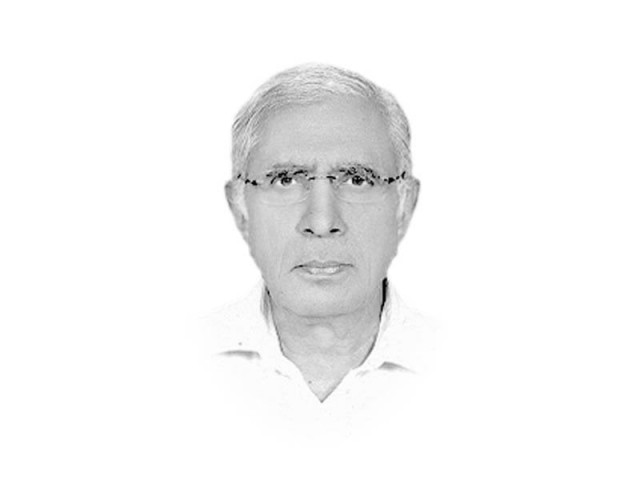Recipe for unity
The government needs to urgently call a CCI meeting to discuss the redistribution of responsibilities

The writer served as executive editor of The Express Tribune from 2009 to 2014
By way of evidence these political novices point to the waning of national political parties into provincial ones with the three of the four major provinces being ruled by different political parties — the PML-N in Punjab, the PPP in Sindh and the PTI in K-P with Balochistan as usual going to the party in power in Islamabad (this has surprisingly undergone a dramatic change in recent weeks).
But being a federation, Pakistan is likely to become politically stronger and more unified socially under an arrangement in which each of the four provinces enjoys a measure of political autonomy rather than being ruled like a colony from Islamabad.
Lest we forget the country was dismembered in 1971 not because East and West Pakistan had enjoyed a measure of provincial autonomy but because of lack of it. Islamabad was ruling the two provinces like its colonies, forcing one of them at a relative disadvantage politically to rebel and take up arms against the perceived colonial masters. We had continued to rule the residual Pakistan in the same colonial style causing deep resentment among the populations of the three smaller provinces.
In Balochistan, the resentment has morphed into an armed struggle led by a deeply alienated part of Baloch population. The people of Sindh too would have gone the same way after the murder of former prime minister Benazir Bhutto in Rawalpindi but they came back from the brink because the Charter of Democracy (CoD) signed between the late Benazir and Nawaz Sharif in 2006 in London had held out the hope that the next elected government which was only a few months away would grant them the measure of autonomy they had been demanding for decades. And that is exactly what the 18th Amendment did.
These political dunderheads who make up a critical mass of our ruling elite seem to have forgotten that the 1973 Constitution had originally envisioned a similar measure of provincial autonomy but had kept the relevant clause in abeyance for the first 10 years. So what was to have been constitutionally activated in 1983 was finally restored in 2008 — after a delay of almost a quarter of a century which had naturally led to deep resentment among three smaller provinces against Islamabad.
The major crux of the 18th Amendment with regard to political autonomy was the devolution of 17 ministries, including those of education, food, agriculture and health, from the centre to the provinces, allowing the provinces to formulate policies and projects in these spheres in their domain. The Council of Common Interests (CII) was also formed to allow provinces to coordinate in matters like public health and education.
Roughly speaking, if the 18th Amendment is implemented in its true letter and in spirit, the federation will have no more than four portfolios to look after — finance, foreign affairs, defence and communication. Additionally, it would need to spare resources for expanding and building physical infrastructure.
The provinces, on the other hand, would need to take care of development, law and order, agriculture, commerce and industry. And the local governments would be left with the task of taking care of education, health and drinking water, etc.
The government needs to urgently call a CCI meeting to discuss the redistribution of responsibilities among the federation, the provinces and local governments as envisaged in the 18th Amendment. Otherwise, the provinces would continue to draw ever larger share of resources without increase in their responsibilities in accordance. On the other hand, the federation would continue to draw an ever smaller share from the divisible pool with its responsibilities remaining the same as before the passage of 18th Amendment, with the added burden of debt servicing and subsidies along with the responsibility of providing hard cash for the ongoing war against terrorism.
Published in The Express Tribune, February 10th, 2018.
Like Opinion & Editorial on Facebook, follow @ETOpEd on Twitter to receive all updates on all our daily pieces.















COMMENTS
Comments are moderated and generally will be posted if they are on-topic and not abusive.
For more information, please see our Comments FAQ